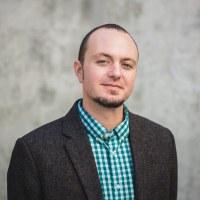UC Davis Sociologist to Study How K-12 Schools Adapt to Increases in Immigrant Families
April 19, 2016
Center for Poverty Research executive committee member Jacob Hibel has won a grant to study how schools adapt to a sharp increase in immigrant families, which will help develop interventions to help low-income kids who may have trouble catching up to their peers.
“This project promises to make important contributions not only to scholarship on education inequalities, but to policy interventions that can help improve educational outcomes for young Californians from diverse backgrounds,” said Victoria Smith, chair and professor of sociology.
Hibel, an assistant professor of sociology and a member of the Center for Poverty Research executive committee, was named one of five William T. Grant Foundation Scholars. The program is a highly competitive and prestigious award that provides funding up to $350,000 over five years to conduct research to improve the lives of youth in America.
Three ways of learning about immigrant children in California
The project will include three areas of investigation. The first will consider how inequality is shaped by the local flow of immigration itself. For the second he will analyze policy documents from more than 870 California school districts to learn how different school district policies and practices may affect these inequalities.
For the third part, Hibel will meet with individual teachers from nine California elementary schools to learn about how they provide services to first- and second-generation immigrant children.
What’s unclear, Hibel said, is whether immigrants will be better off in areas that are not yet a common immigrant destination. Many of these new areas are more affluent. They may have a better economy and higher quality schools. They may still be unprepared.
“Many of the communities and institutions I will study are not used to serving children of immigrants,” said Hibel.
Schools tend not to evaluate students for learning disabilities, emotional disorders or other special needs until they achieve English proficiency. By then it may be too late. The time to intervene, said Hibel, is from kindergarten through the third grade. By fourth and fifth grade students have a much harder time catching up. ESL classes typically run for a student’s first three to four years in school.
Lessons from teaching second grade in Baltimore
Hibel has been interested in inequality for a long time. He grew up in Florida, and attended a school that was diverse but highly segregated. As an undergraduate student he took a class in the sociology of education and switched to sociology for his major. “Sociology was a scientific way to think about these issues,” said Hibel.
Before he completed his undergraduate degree he taught second grade summer school in Baltimore as part of a study to see if offering continuous learning over the summer to low-income, predominantly African American children can help them keep up with more affluent kids when school starts again.
While teaching in Baltimore Hibel learned that sociology is a way to understand and develop better interventions that can reduce inequality in our society. The experience forced him to think about what he could do about educational inequality. “I thought, how can I do something about this?” he said. “To do anything else would have been the immoral thing to do.”
Mentorship to learn new skills
The William T. Grant Scholars Program is for early-career researchers in the social, behavioral, and health sciences and provides for faculty mentorship in learning new research methods and skills. Hibel’s research background is in macro-demographic statistical analysis, an approach that uses large-scale datasets to study shifts in population over time.
Ruth López Turley from Rice University, Amy Binder from UC San Diego and Michal Kurlaender from the UC Davis School of Education will help him develop skills in qualitative research.
Kurlaender, an associate professor of education and a member of the Center for Poverty Research executive committee, recently won a $5 million grant from the U.S. Department of Education to study how well California prepares K-12 students for college and careers.
“Jacob is working on one of the most critical areas of education equity—the achievement and attainment of immigrant students,” said Kurlaender. ”What makes this project so important is his effort to understand how our schools can better serve immigrant students and their families amidst major state and federal reforms in accountability.”
Hibel said that his experience at with the Center for Poverty Research has been essential for helping him to think about his work from a policy perspective, but also for the benefits of working in an interdisciplinary research community.
“With the Center for Poverty Research it’s been very invigorating to work with a supportive group from economics and the School of Education,” said Hibel. “It’s made me really motivated to think about how work can expand beyond a single discipline to others in this area.”
Learn more about the award at the William T. Grant Foundation website.










